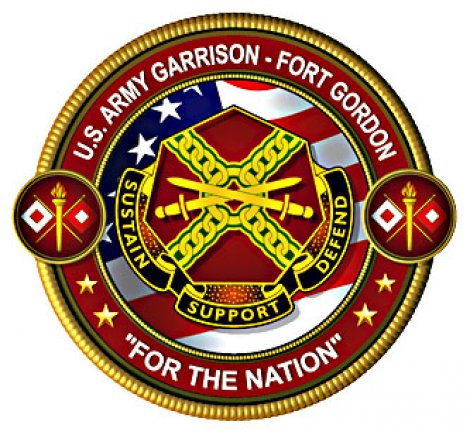www.gordon.army.mil – Sign up for Military Discounts

History:
Camp Gordon, almost deserted after June 1948, came to life in September 1948 with the establishment of the Signal Corps Training Center. The post’s training mission grew with the addition of the Military Police School in September 1948 and the activation of the Engineer Aviation Unit Training Center in January 1949 (the latter remained at Camp Gordon for only one year).
The Korean conflict again placed Camp Gordon center stage in preparing Soldiers for combat. In addition to communications personnel at the Signal Training Center’s Signal Corps Replacement Training Center and Signal Unit Training Group, MPs trained for combat assignments while the 51st Anti-Aircraft Artillery Brigade formed three detachments before moving to Camp Stewart, Ga. In 1950, the installation became the site for Military Government Training for the Army.
Also during the decade, Camp Gordon was home to the only Army Criminal Investigation Laboratory in the continental United States as well as a Rehabilitation Training Center and a U.S. Disciplinary Barracks. In 1953, the Basic Replacement Training Center and the Advanced Leader’s School provided basic training and advanced leadership training (both were inactivated in 1955). The Civil Affairs School arrived in 1955 as part of the Civil Affairs and Military Government School. Camp Gordon, becoming a permanent Army installation on March 21, 1956, was re-designated Fort Gordon.
The U.S. Army Training Center (Basic) was activated here in 1957. During the Vietnam War, infantry, military police and signal soldiers trained at Fort Gordon. While Signal Corps training continued to expand throughout the 1960s, other activities ceased through postwar and the Military Police School’s move to Fort McClellan, Ala.
In June 1962, all activities of the Signal Corps Training Center were reorganized under the U.S. Army Southeastern Signal School. Designating the installation the U.S. Army Signal Center and Fort Gordon, the Army consolidated all communications training at Fort Gordon on Oct. 1, 1974. The arrival of the Army’s Computer Science School was only part of the impetus for the fort’s tremendous growth during the 1980s.
The following decade found its Mobilization Command deploying numerous troops to Southwest Asia during Operation Desert Shield-Desert Storm (1990-1991). Fort Gordon figures prominently in the post-Cold War national defense. Still the “Home of the Signal Regiment,” it also supports the 35th Signal Brigade, 513th Military Intelligence Brigade, the National Security Agency/Central Security Service Georgia and the 7th Signal Command (Theater).
Mission-Home of the Signal Regiment:
The U.S. Army Signal Center of Excellence and Fort Gordon, the “Home of the Signal Regiment,” trains more military personnel than any other branch training center of the U.S. Army. The multifaceted mission of the U.S. Army Signal Center of Excellence and Fort Gordon encompasses training, doctrine, force integration and mobilization.
The Signal Center conducts specialized instruction for all Signal Regiment military and Department of the Army civilian personnel in the Army and provides doctrine and training development support of publications. Three U.S. Army Training and Doctrine Command capability managers coordinate acquisition and fielding of major systems.
Force integration is accomplished through the life cycle management of all major communications electronics systems under study or in development for future use in the field Army. The mobilization mission is to maintain assigned U.S. Army Forces Command units in a state of readiness commensurate with their authorized level of organization.
Fort Gordon provides year-round training for more than 54,000 reservists as well as Army and Navy Reserve Officer Training Corps students.
Technological advances have drastically changed the Signal Corps since its founder, Albert J. Myer, introduced “Wigwag,” or visual signaling, shortly before the outbreak of the Civil War. Throughout the years, the Signal Corps Regiment has been on the cutting edge of advancements in communication technology. Adapting the telephone to military usage, facilitating the standardization of the vacuum tube, developing radar and FM radio during World War II and incorporating satellite communications and computer technology are just some of the Signal Regiment’s many accomplishments.
Community:
www.fortgordon.com
The Fort Gordon community strives to enhance quality of life by offering recreational, social, educational, and personal services to service members, their families and the surrounding community.
In entertainment, the Fort Gordon Dinner Theatre provides enjoyable and inspiring live theatrical productions, with several shows each season. The IET Soldier Recreation center provides a place for soldiers in training to relax away from the barracks and training schedules. The Live Theatre Program works hand in hand with the Dinner Theatre to provide live concerts, theatrical productions, and special events, playing to capacity audiences. The Courtyard is a recreational and dining facility providing exquisite menus and a place to relax.
For Dining options, there are several options for both casual and fine dining. Whether you’re looking for takeout or a nice, leisurely dinner with the family or that special someone, there is a place for you.
For Sports and Recreation, the Gordon Lakes Golf Club offers a beautiful 27-hole course. Members can register for tournaments, or just play at their leisure on what is said to be the best golf course in the Army. The Hilltop Riding Stable offers lessons, boarding options and Horse Camps for youth and children. You can play the day away at Gordon Lanes bowling alley, or spend the day at either the Indoor or Outdoor Pool. Get fit at one of the fitness centers on base! Sign up for a group fitness class, register to work with your own personal trainer, or work at your own pace on the state of the art equipment!
Fort Gordon offers an array of programs that the whole family can enjoy together! The Army Community Service program is designed specifically to assist servicemen and women in maintaining balance in their lives as they serve. They also offer several child and youth developmental programs to assist in your children’s educational endeavors.
Connect with Us